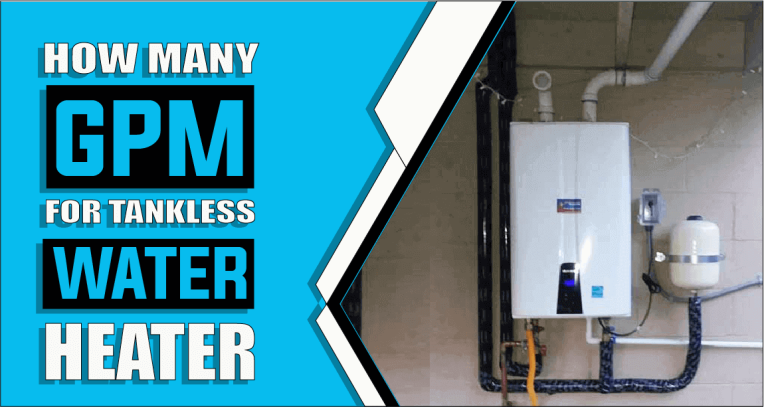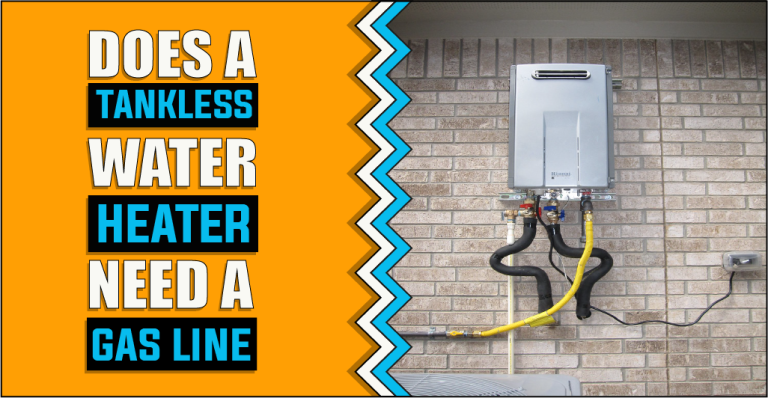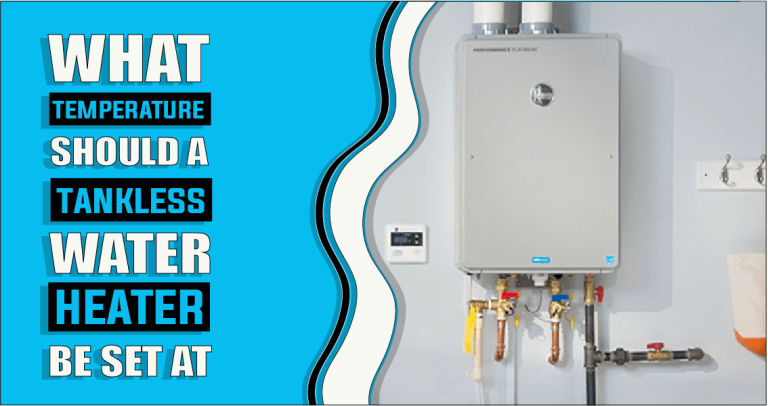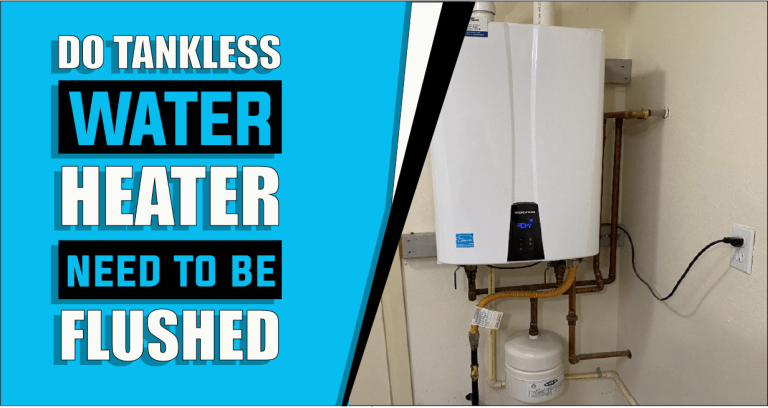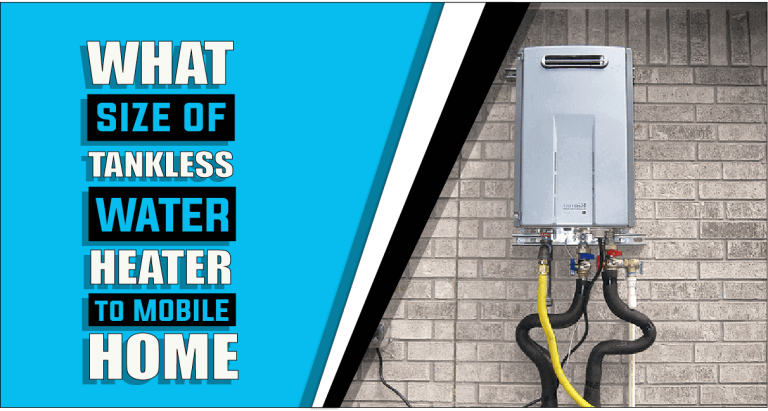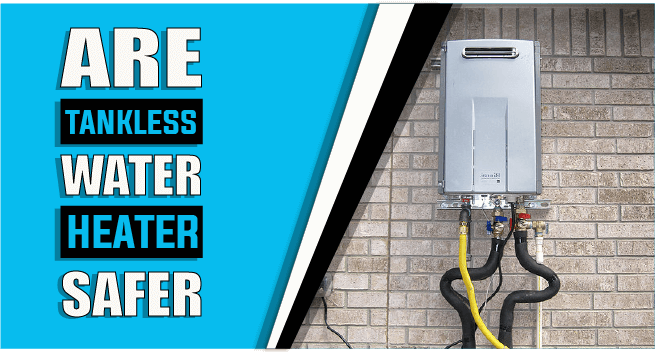Is Tankless Water Heater Better Than Tank – The Truth Reveals
A water heater is regarded as a long-term investment and a need in every home. So are you planning to buy one and indecisive about whether to choose a tankless water heater or a traditional tank-style heater? When it comes to finding the perfect home heating solution for your family, there are several factors to consider. One of the most common questions faced by homeowners is tankless water heater better than a tank. This question can have an enormous impact on your wallet, your comfort levels, and the overall efficiency of your home heating system. To make this important decision, we’ll explore the differences between tank and tankless water heaters so that you can figure out which type is best suited for your needs. Read on to learn everything there is to know about both types of systems and make an informed decision about your next home heating investment.
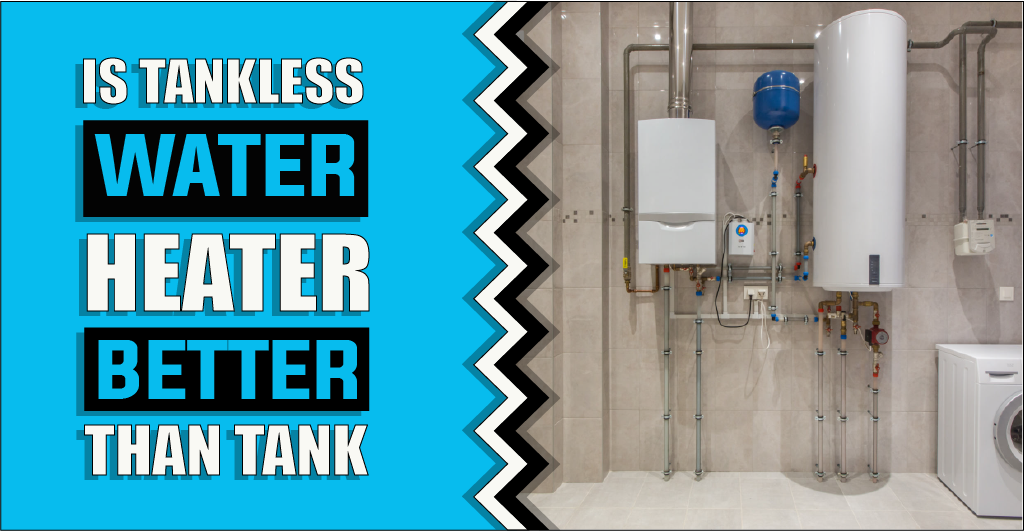
Let’s explore whether is tankless water heater better than a tank.
Tankless water heaters offer on-demand hot water and energy efficiency, while tank-style water heaters are more traditional and economical. Tankless heating units don’t store large amounts of water in a tank instead they instantly heat the cold water whenever you need it. On the other hand, tank-style units typically provide a higher capacity of hot water because they store heated gallons inside their tank for future use.
Additionally, tankless water heaters also require less energy to operate since they only need to run when needed. This will help reduce your monthly electric bills and save money in the long run. And although tank-style units are more affordable upfront, tankless water heaters are often the wiser choice for long-term cost savings. At the end of the day, choosing between the tank and tankless water heaters comes down to personal preference. Weighing out the pros and cons of each model should help you make an informed decision that meets your needs as well as your budget!
Tankless Water Heater Vs Tank, The Differences
When it comes to water heaters, there are two main types available on the market: tankless water heaters and traditional tanked water heaters. Both have their advantages and disadvantages, so when deciding which type of water heater is best for your home, it’s important to weigh many factors including buying price and installation, system size or capacity, energy efficiency ratings, and lifespan and durability of the unit.
1: Buying Price and Installation
- Tankless Water Heater
Tankless water heaters have generally high upfront costs than tank ones. However, buying a tankless water heater can be an economical and practical choice for many homeowners who need a long-run reliable, and efficient water heating system. It is very important to consider both the purchase price and installation costs before making your decision. The average cost of purchasing a tankless water heater ranges from $1,000 to $2,500 depending on the brand, size, efficiency rating, and other features. Professional installation will add a cost between $500 and $1,000 on top of the purchase price. Some utilities offer rebates on tankless systems which can help reduce total expenses.
- Tank Water Heater
The purchase price of a tank water heater can vary widely depending on the size, fuel source, and energy efficiency of the heater. Smaller units may cost anywhere from $300 to $700, while larger units that can accommodate more water can be priced up to around $1,500 or more. It’s also important to consider installation costs when budgeting for a tank water heater. Installing a standard gas-powered tank water heater requires venting materials, fittings, and pipes which can add up to hundreds of dollars in additional costs. Electric models are generally easier and less costly to install, but they may require specialized wiring and potentially hefty labor charges. In either case, hiring a professional technician is recommended to ensure the job is done correctly and safely.
2: System Size or Capacity
- Tankless Water Heater
Tankless water heaters offer a great solution for those seeking to save space, resources, and energy. Unlike traditional water heaters, tankless versions don’t keep a large reservoir of hot water in storage; instead, they instantly heat only the amount of water needed at a given time. This means that tankless versions require less physical space than tank models since there’s no bulky storage tank taking up room. Furthermore, tankless water heaters also boast a higher capacity than traditional models. Most can easily provide hot water to multiple outlets simultaneously without any loss of pressure or temperature—up to 9 gallons-per-minute (GPM) and can even be used in high-demand commercial settings if necessary.
- Tank Water Heater
Tank water heaters are a great choice for those who need reliable hot water with a large capacity. Tank water heaters are typically larger than tankless water heaters, which means they take up more space but can hold much more hot water. The size of the tank depends on the size of your household and how much hot water you use daily, with tanks ranging from 20 to 80 gallons in size. With a larger tank, you will have access to a greater capacity of hot water and won’t have to worry about running out during peak times.
3: Energy Efficiency Ratings
- Tankless Water Heater
Tankless water heaters are becoming increasingly popular for their energy efficiency and cost savings. Tankless water heaters have an extremely high energy rating, often up to 99% or higher, making them substantially more efficient than traditional tank-style water heaters. The lack of a large storage tank also helps with energy efficiency as there is no need to keep the tank warm when it’s not in use. These water heaters are capable of providing hot water on demand while only using energy when it’s needed, saving consumers both money and energy.
- Tank Water Heater
Traditional tank water heaters also offer good energy efficiency, with ratings between 50 and 80%. However, tank-style water heaters keep their tank of hot water constantly heated to provide a steady supply. This means that tank water heaters consume more energy daily than tankless models, resulting in higher monthly bills.
4: Lifespan and Durability of Unit
- Tankless Water Heater
Tankless water heaters have significantly longer lifespans than tank-style water heaters, with some models lasting up to 20 years or more. Unlike tank-style water heaters, tankless units do not need to be periodically drained and flushed, extending their overall lifespan even further. Furthermore, many tankless models are made from corrosion-resistant materials like stainless steel which helps increase their durability over time.
- Tank Water Heater
Tank water heaters provide a reliable and efficient way to heat cold water in frosty. With a lifespan of up to 12 years, tank water heaters are very durable and can withstand the normal wear and tear associated with daily use. To get the most out of your water heater’s lifespan, it is important to maintain it regularly. This includes flushing the tank periodically to remove any sediment build-up, as well as making sure that all wiring is secure and in good condition. Additionally, inspecting the anode rod every few years and removing debris from filter and vent pipes can extend the life of your tank water heater.
Pros and Cons of Tankless Water Heaters
Tankless or on-demand water heaters are becoming an increasingly popular choice for homeowners. In addition to some great benefits of tankless heaters, there are some drawbacks too. Let’s take a look at the list of pros and cons of tankless water heaters to select the right model for your needs.
Tankless Water Heater Advantages
- Tankless units are more energy-efficient and consume about 40 percent less energy than tank water heaters. They use only the exact amount of energy it takes to heat the water you need at any time, resulting in lower energy bills.
- Tankless water heaters offer a steady supply of hot water on demand without running out or waiting for reheat cycles.
- Tankless water heaters are also capable of producing up to 4 gallons of hot water per minute, making them ideal for large households with high hot water demands.
- Due to super higher efficiency, they can help you to reduce monthly electric bill costs.
- They occupy much less space than tank-style units and can be mounted on walls or tucked out of sight.
- These heating systems also require fewer maintenance requirements than traditional tank heaters due to their compact design and the need for a storage tank.
- Tankless models are built to last with lifespans of up to 20 years in some cases.
- Tankless water heaters can provide hot water to multiple outlets simultaneously.
Tankless Water Heater Drawbacks
- The initial upfront cost of tankless units can be higher than tank-style water heaters, depending on the model.
- Some tankless models require additional venting components if installed inside, which adds to the overall installation expense.
- If your home has a high demand for hot water, you may need to install multiple tankless units to meet the demand.
Pros and Cons of Tank Water Heater
Tank water heaters are another type of water heater that can handle the hot water needs of any household. With several benefits and drawbacks, tank water heaters are a good choice to add to the hot water system.
Tank Water Heater Advantages
- Tank water heaters are easily available and found in most homes today.
- They require much less upfront cost than tankless systems, so tank-style models can be more budget-friendly for many homeowners.
- The tank stores a large amount of hot water at once, so you don’t have to wait for the tank to reheat before getting hot water.
- Tank water heaters are also able to supply higher amounts of hot water at once than tankless systems, making them ideal for households with high demand.
Tank Water Heater Drawbacks
- Although tank water heaters can store large amounts of hot water, they also require more energy to keep the stored water at a consistent temperature.
- Tank heating units can be less energy efficient than tankless models and result in higher monthly bills.
- They also take up more space since tank-style units have an insulated tank with a large diameter and tall height.
- Additionally, tank water heaters need some preventive maintenance requirements like flushing the tank once a year and replacing the anode rod every three to five years to extend tank life.
Overall, tankless units offer higher efficiency and an unlimited supply of hot water but tank models are a more budget-friendly option with a lower upfront cost. So it’s up to you to decide which one is the best for your home according to your water needs, budget, and preferences.
Frequently Asked Questions
Yes, a tankless water heater can help you to reduce your electricity bills. They provide a continuous supply of hot water that is heated quickly, resulting in significant energy savings over time.
Yes, tankless models are up to 40 percent more efficient than tank-style units. They only consume the exact amount of energy needed for heating the water as you use it, so no energy is wasted in reheating cycles.
Tankless water heaters may cost more upfront, but they can save you money in the long run due to their energy efficiency. Tank-style units are cheaper initially, but their tank needs to be heated constantly, resulting in higher monthly electricity bills.
Tankless water heaters require additional venting components which adds to the installation cost. They may also need multiple tankless units installed to meet high hot water demands in households. Lastly, tankless models can be more expensive than tank-style heaters initially.
Both tank and tankless water heaters are safe to use if they are properly installed and maintained. However tankless models tend to be safer since the heat source is isolated from the tank, reducing chances of accidental burns or flooding in case of a tank leak.
It depends on your water needs, budget, and preferences. Tankless water heaters offer higher energy efficiency, unlimited hot water supply, and long lifespan. However tank-style units are initially cheaper and can handle larger volumes of hot water at once. Ultimately, it’s up to you to decide which type is the best for your home.
Conclusion
So, in conclusion “is a tankless water heater better than a tank”? A tankless water heater is a great choice for many homeowners who need an energy-efficient, cost-effective way to heat their water. Tankless units require less maintenance and have the potential to save you money in the long run with their higher efficiency rating. On the other hand, tank-style models come with lower upfront costs and may be better suited for households with high hot water demands. Ultimately, it is up to you to decide which type of water heater best suits your needs. No matter what type of tank or tankless system you choose, make sure that all safety protocols are followed during installation and get regular checkups to ensure optimal performance.
Ella John is passionate about helping her readers make the best choice when purchasing a heater. She understands that selecting a heater can be difficult and strives to provide information to help make the decision easier. Ella’s website, Heatersinfo.com, provides valuable insight into heating trends and types of heaters and tips on how to care for them. She also advises selecting the right heater based on individual needs and preferences. Her expertise in electronics makes her an excellent source of knowledge, and she is confident that anyone who visits her website will find the perfect heater information for their needs. Ella’s dedication to helping others make educated decisions about buying the right heater is unparalleled, and she hopes to continue offering her expertise for many years. With Ella’s help, finding the perfect heater can be a breeze!

